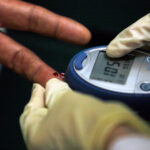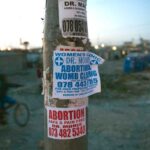With almost 50% of homeless people suffering from mental illnesses, according to a study, we spoke to four people who live on Durban’s streets.
Not having a fixed address has presented endless troubles for homeless people around the country who struggle to get access to basic services. No permanent address means they cannot obtain identity documents, which they need to get healthcare, education, a job or social grant.
Homelessness is “an increasing public health problem”, according to the World Health Organisation. Homeless people are, for instance, exposed to infectious diseases, such as tuberculosis, because of poor living conditions.
They also become vulnerable to developing mental illnesses. A 2010 study published in the journal Development Southern Africa found that about 50% of homeless people suffer from mental illnesses. The researchers believe the figure is likely to be higher because “many might not have remembered the diagnosis or might not have been able to access services (and therefore have not received a diagnosis)”.
Bhekisisa spoke to several homeless people on the streets of Durban.
Lucky
Lucky (he did not give his surname) is short and unassuming. His shirt is wrinkled but neatly tucked into his pants. Under his cap his face looks weary and his eyes are sad.
His small frame seems bogged down by a painful upbringing that drove him, like so many others, to call the streets of Durban his home.
Lucky was seven years old when he left Bizana in the rural Eastern Cape in 2001 to escape the abuse he experienced at home.
“I used to sleep outside, sometimes with the neighbours. The neighbours even named me dingindawo [one with nowhere to go] because they saw the situation I was living in. When I was with my family I was unhappy. But when I was with strangers I was happy.”
Lucky says he was treated differently to his brothers and sisters; he would suffer beatings at the hands of his parents and even his uncles, and was often kept out of school to herd the family’s cattle.
“I just tell people that I don’t have a family. What have they done for me anyway?
“I’m not saying I hate them, but I have no attachment to them.”
While living on the streets in Durban, Lucky was placed in a children’s home, but says he spent many years receiving psychiatric treatment at a local hospital. “My mind was not together. It was confused and I felt sad all the time,” he says. “They gave me pills for my mind and I stayed at the hospital for a long time.”
When he turned 18, Lucky could no longer live in the children’s home. He was rendered homeless because he felt he had no home to return to.
“I am happy when I eat and have clothes on my back. If I die, I die, because it’s clear that my family doesn’t care about me.”
A recent study by the University of Johannesburg (UJ) affiliated Centre for Social Development in Africa found that homelessness and mental illness are intrinsically linked. Researchers state that, although mental illness can “increase the risk of homelessness, the harsh conditions on the streets are likely to produce and aggravate symptoms of mental illness”.
The 2010 study published in Development Southern Africa, which examined the “health and wellbeing of the homeless in South African cities and towns”, found that 45% of the children and 58% of the adults surveyed “reported experiencing symptoms of depression”, yet only 3% of children and 6% of adults “had actually been diagnosed with a psychiatric condition”.
Lucky is now 22 but doesn’t have an identity document and has never been to school. He depends on donations and what little money he can make as a car guard in the Durban city centre. He says there are often territorial disputes with other car guards “but I keep going back because I don’t want to steal. I want to work”.
Growing up mainly on the street, the young man says he had “a lot of bad things” happen to him and had nobody to stand up for him. “When we are all here [homeless] we are brothers and sisters. We are the same and we are together.”
But life on the street has not been easy. “We end up using things we are not supposed to. I smoke weed – not that I like it. It was just the situation I found myself in.
“I’m not okay. I used to pray for God to take me – for rest.”

Kwazi Sithole
Bertha Mkhize Street in downtown Durban is abuzz with activity.
Hawkers from the Warwick Junction market pour on to the crowded pavements. The mid-morning traffic is at its peak and impatient hoots from cars stuck in traffic blend with the muted shouts of construction workers at a nearby building.
Men in mismatched clothing twirl dirty rags in the air, indicating to motorists spaces available for parking.
Among the car guards is Kwazi Sithole but, unlike the other men who have positioned themselves in the middle of the oncoming traffic to attract customers, he stands on the curb, leaning heavily on the single crutch in his left hand.
Though tall – he stands head and shoulders above his colleagues – Sithole doesn’t look much older than 16. But he insists that he is 19 years old.
“I’m from Port Shepstone [120km south of Durban],” says Sithole, his voice soft in the clamour of downtown Durban. “I came here with a friend many years ago.”
Sithole’s reason for leaving home is the same as most homeless people on the street – family problems.
He sinks into the over-sized neon reflector vest hanging loosely on his shoulders and avoids any further discussion about what drove him to live on the streets.
A makeshift bandage is clumsily wrapped around the bottom of Sithole’s left leg.
“I got beaten up by security guards because I was sleeping on the streets,” he says.
“My foot is sore but I drink pain medication I bought at the chemist. I’m scared of going to the hospital. What if they cut [my foot] off?”
A 2012 University of KwaZulu-Natal study that appeared in the Africa Journal of Nursing and Midwifery looked into the “health seeking experiences and behaviours of homeless people in South Central Durban”. It found that homeless people were at risk of physical abuse because they lacked shelter.
Fourteen percent of children and 19% of adults who participated in the 2010 study published in Development Southern Africa said they had “some degree of limitation in mobility caused by pain”.
A 2014 study by UJ’s Centre for Social Development in Africa, which explored the link between poverty and disability, found that people with disabilities are “less likely to be able to earn an income”, therefore “disability may increase the risk of poverty”.
The study also found the reverse was true – that “poverty may increase the risk of disability”.
Trevor Gertz
“When I die and go to heaven, God will know what situation turned me to be corrupt sometimes,” says Trevor Gertz. “It’s not easy for me because I’m a hobo, so I cannot go to a person who is not a hobo and say, ‘Sorry, can you help me? I’m hungry’?.”
Neatly dressed in a long-sleeve orange T-shirt and jeans, Gertz looks more like a passer-by than a rough sleeper in Durban’s Greyville Park, where many men and women return to sleep every night.
“I’m brought up on the streets. Growing up I used to see people begging by the robots – children begging – but I wasn’t like them.”
His face hardens as he shakes his head.
“I saw some people doing crime to survive and realised that this is the only way to survive. I ended up doing crime, getting locked up and going to jail.
“I’m not corrupt because I want to be corrupt. I’m corrupt because sometimes I have needs,” he says, with an apologetic shrug.
Gertz’s mother died when he was three. He was sent to live with an aunt because his father was absent.
“Social workers came and took me from my aunty’s place to put me in a place of safety,” he says.
“While I was [at the place of safety] I used to go primary school. I would notice that the other children had parents. But I had no mother, no father. When I asked, nobody could tell me where my parents are.
“I ended up being naughty because I was missing the love of a parent.”
Gertz was adopted by a woman who, he says, “used to assault me with a sjambok”.
“So one day I had a dream about my mother and asked her [the adoptive mother] about it. She said that my mother never loved me and that she threw me away. So I looked back and realised that the aunty was assaulting me because she’s not my mother. In 1996 I ran away from there.”
Research shows that abuse is one of the leading causes of children becoming homeless. They often resort to the street to escape the situation in their homes. According to a joint study by government and the United Nations Children’s Fund published in 2012, violence experienced during childhood can “create significant risk for mental health problems such as post-traumatic stress disorder, mood disorders and anxiety disorders”.
The report says that children who experience abuse may display “behavioural problems, such as aggression”, as a coping mechanism.
Like many homeless people, Gertz has lost count of the number of years he has been living on the streets, and is not even sure how old he is.
“I’m 23. No, I’m going for 27. I’m not really sure, because even when I go to apply for an ID they tell me to go look for my aunty’s ID number,” he says with a scoff. “I don’t even know my aunty’s number.
“I don’t know what to do. I have no particulars, no ID number, and no birth certificate. And when I go to home affairs [to apply for an ID] they tell me they need this information. It drives me crazy,” he says.
“I have problems. All of us here have different problems.”

Old man
“I have children, I am old. But look, I’m sleeping outside like this,” the man says, holding his hands up in dismay.
It’s dusk and the sun has started to set. His features are dark and rugged. Greyville Park, next to the Greyville Racecourse where the annual horse racing and fashion extravaganza Durban July is held, is dim. On the outskirts of the park several fires have been lit. People come from all directions, some carrying big loads, others retrieving what few belongings they have from the trees under which they will make their beds for the night.
“I sleep there by that tree,” he says, pointing into the dark park towards one of the trees where a fire illuminates makeshift beds.
“I panel beat, I repair. I came here [Durban] for work but now I can’t even work. Metro [police] took all of my stuff.”
The 2014 survey by the Centre for Social Development in Africa found that seeking employment was one of the main causes of homelessness, because people often migrate to urban areas hoping to find work. When they fail,people, like the old man, find themselves stranded and isolated from their families and have no means to go home.
“We have all been injured,” says the man. The sun has disappeared behind the dilapidated grey buildings surrounding the park. “Once the security guards come they hit all of us who are sleeping outside. We can’t open a case against the metro [police], because they are the municipality. Who are we, as oshoshoba [nobodies], to open a case against them?”
Numerous studies found that homeless people are often abused by law enforcement officials. They are beaten and their belongings – blankets, clothes and identity documents – are confiscated.
The man did not want to be identified. “I’m too scared my family will learn about my situation and find out I’m actually homeless.”
He came to Durban in November and says the squalor he is living in is very far removed from his life in the Eastern Cape, where his family is.
“My children are back home. They are hungry. I am sitting here and I am also hungry. But at least they have a roof over their heads.”
Having had his tools and ID taken by the metro police, he says he cannot ask the numerous vehicle repair shops in the areas for a job.
In the meantime his family is still under the impression that he will be sending money home soon.
Without an identity document, the old man is unable to get access to health care, obtain a job or even apply for a social grant.
According to the United States-based nongovernmental organisation Freedom from Hunger, “undernourishment negatively affects people’s health, productivity, sense of hope and overall wellbeing”.
The old man says: “My family only know that I am in Durban working. They don’t know that I sleep outside like this. It hurts. I just want to [earn money] like a working person. Maybe one day after a long visit I’ll tell them that I am not going back to Durban, because there’s nothing here but poverty. We are troubled and confused,” he says, shaking his head. “Si lila si nga bhetwanga [we cry without being beaten].”
Ina Skosana was a health reporter at Bhekisisa.





